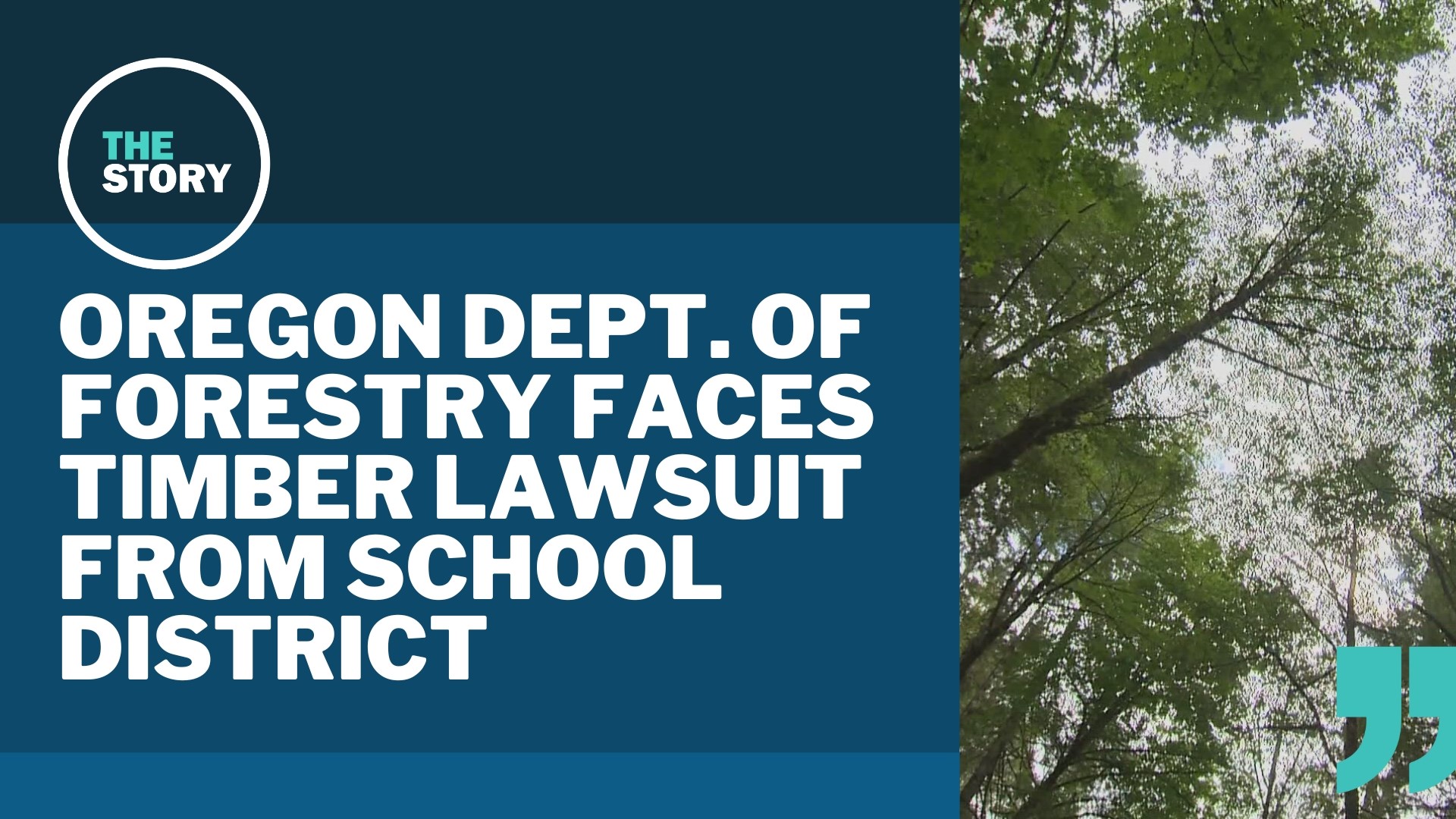PORTLAND, Ore. —
A small school district has sued the Oregon Department of Forestry over declining timber revenues as the state prepares to implement a new management plan for its forests.
The Jewell School District, home to roughly 145 students in Clatsop County, filed the lawsuit in Oregon Circuit Court last week.
In Oregon, revenues from timber harvests on state lands are divided between the counties where they’re harvested and the department.
At the crux of the lawsuit is a provision in the 2010 Northwest Oregon Forest Management Plan that requires the department to “Maintain a budgeting and financial management system that assures that revenues derived from these state forest lands are sufficient to cover the department’s costs.”
John DiLorenzo, an attorney representing the Jewell School District, said the department has failed to comply with the rule.
“There happens to be a law, it's an Oregon administrative rule, that requires that the department must at least break even on its share of the revenues,” DiLorenzo said. “It's not doing that.”
In a letter to State Forester Cal Mukumoto, DiLorenzo noted that the State Forest Division had a net loss of more than $13 million, with larger deficits forecasted in the coming years.
The department declined to comment, citing pending litigation.
In the background of the lawsuit is the state’s ongoing effort to implement a new Habitat Conservation Plan for state forests in Tillamook and Clatsop counties. The plan would prohibit logging in some areas and protect the state from lawsuits filed over Endangered Species Act protections for some animals that live there.
It would also cut projected timber harvest and timber revenue flowing to the counties and to school districts like Jewell.
“The school district received $4.2 million in timber revenues last year,” DiLorenzo said. “The long and the short of it is they're going to lose about 35% of their revenues that are going to have to be made up somehow.”
That’s why the district has asked the courts to step in, DiLorenzo said.
“We are asking for a court to rule that the department has two choices,” he said. “Increase the harvest revenues so Jewell can continue to offer the quality education it offers or share in the sacrifice that it is expected of all these local governments and sharply reduce its own staff.”
Not everyone agrees with that logic, however.
“It's just not as cut and dry as I believe the school district and Mr. DiLorenzo are attempting to lay it out to be,” said Grace Brahler, wildlands director for Cascadia Wildlands, an environmental nonprofit. “Oregon law requires that the state forester manage state forests to secure a wide range of values, not solely just timber harvest.”
While the 2010 forest plan does include language that requires the department to cover its own costs, it also says the department must “conserve forest lands by maintaining the state forest land base” and “grow and harvest trees to produce timber, revenues, jobs, and habitat for native species.”
Brahler said that state forests should be managed for the interests of all Oregonians, not just a single school district or county.
“It's our strong belief that we shouldn't rely on over-extracting natural resources that are to be managed for the benefit of all Oregonians, not just certain locations or a select few,” she said.
Brahler did acknowledge that timber revenues would take a hit when the Habitat Conservation Plan is put in place, but she said the impact to districts like Jewell was indicative of a larger problem.
“I think this gets at a much broader conversation around how to sustainably fund those essential services that, for some counties more than others, will be impacted by the implementation of the Habitat Conservation Plan,” Brahler said.
For her part, Gov. Tina Kotek has expressed support for the department as it has worked on the plan for the last six years. Earlier this month, Kotek wrote in a letter than she planned to work with the legislature in the next session to find state money to offset losses to timber counties and districts like Jewell.
DiLorenzo said that money alone won’t solve the problems a loss in timber revenue would create for the Jewell School District.
“If there are no timber revenues, there are no timber jobs and if there are no timber jobs, there are no parents and then there are no students to educate,” DiLorenzo said. “We're not going to have students if all the parents have to move away because there are no jobs.”
Brahler said there are more ways to measure the value of state forests than just the timber revenue they create.
“There are a lot of jobs, a lot of values, that come out of our state forests,” she said, noting that the fishing industry has been impacted by poor water quality created by logging and that state forests are popular places for recreation. “It's not as enticing to go out and view clear cuts.”

